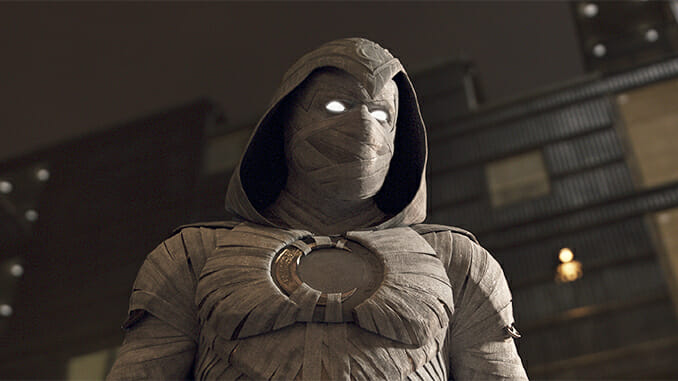Marvel TV Has a Pacing Problem
Photos Courtesy of Disney+
Some spoilers for the Moon Knight finale are below.
When it comes to the Marvel Cinematic Universe, the television side of things have always been a bit rough. From the ABC dramas to the Netflix shows to the latest endeavors on Disney+, Marvel’s TV shows have never really hit the consistency that the movies they’re derived from did.
It’s not like Marvel had a great start when it came to the small screen, either. Marvel Television and Marvel Studios were not a joint venture under Kevin Fiege’s control until October of 2019, and with Ike Perlmutter in charge of TV until then, there weren’t a lot of cohesive ventures between the movies and TV outside of the first season of Agents of S.H.I.E.L.D. It wasn’t until the Disney+ slate of shows that were announced at Disney’s 2020 Investor day started to premiere that Marvel managed to get a solid hold on TV.
Wandavision’s success as Marvel’s first foray into an MCU canon TV show on Disney+ was followed by what seemed to be a less and less positive reception for every show that followed it. Sure, people who like everything Marvel does liked Hawkeye, but that doesn’t mean that it was actually good. The Falcon and The Winter Soldier, Loki, and the recently concluded Moon Knight all certainly exist as TV shows and are presented as such to consumers, but they (and the series previously mentioned) all share one thing in common: terrible pacing.
-

-

-

-

-

-

-

-

-

-

-

-

-

-

-

-

-

-

-

-

-

-

-

-

-

-

-

-

-

-

-

-

-

-

-

-

-

-

-

-








































